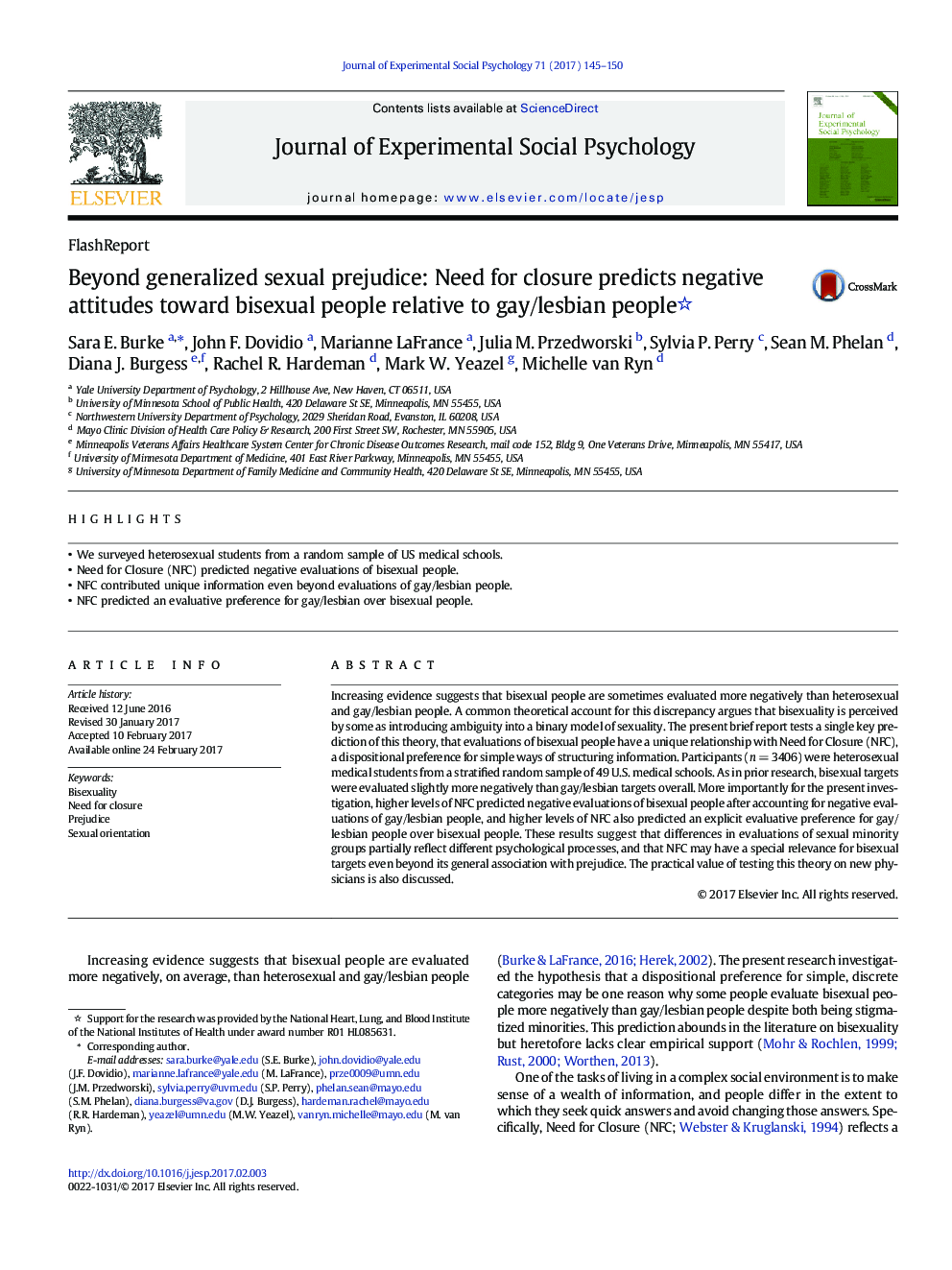| Article ID | Journal | Published Year | Pages | File Type |
|---|---|---|---|---|
| 5045622 | Journal of Experimental Social Psychology | 2017 | 6 Pages |
â¢We surveyed heterosexual students from a random sample of US medical schools.â¢Need for Closure (NFC) predicted negative evaluations of bisexual people.â¢NFC contributed unique information even beyond evaluations of gay/lesbian people.â¢NFC predicted an evaluative preference for gay/lesbian over bisexual people.
Increasing evidence suggests that bisexual people are sometimes evaluated more negatively than heterosexual and gay/lesbian people. A common theoretical account for this discrepancy argues that bisexuality is perceived by some as introducing ambiguity into a binary model of sexuality. The present brief report tests a single key prediction of this theory, that evaluations of bisexual people have a unique relationship with Need for Closure (NFC), a dispositional preference for simple ways of structuring information. Participants (n = 3406) were heterosexual medical students from a stratified random sample of 49 U.S. medical schools. As in prior research, bisexual targets were evaluated slightly more negatively than gay/lesbian targets overall. More importantly for the present investigation, higher levels of NFC predicted negative evaluations of bisexual people after accounting for negative evaluations of gay/lesbian people, and higher levels of NFC also predicted an explicit evaluative preference for gay/lesbian people over bisexual people. These results suggest that differences in evaluations of sexual minority groups partially reflect different psychological processes, and that NFC may have a special relevance for bisexual targets even beyond its general association with prejudice. The practical value of testing this theory on new physicians is also discussed.
